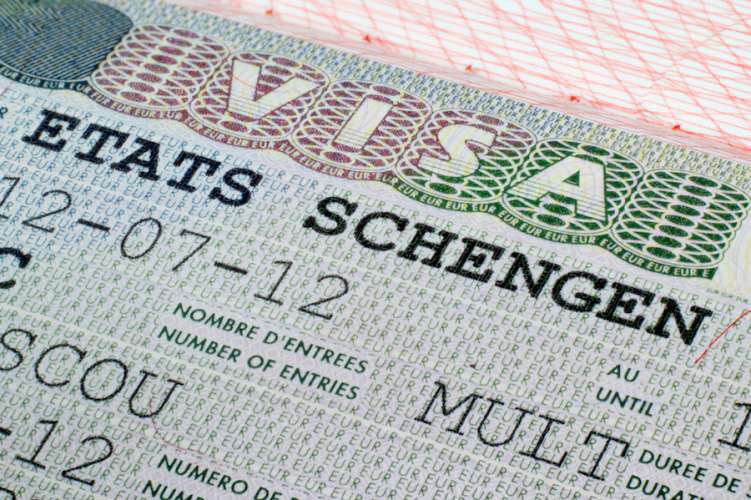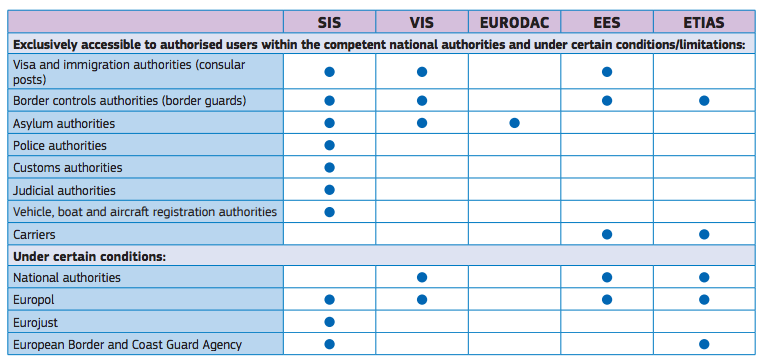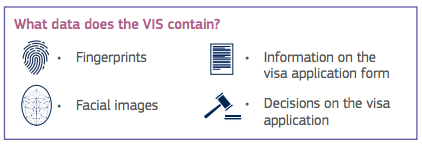Schengen visas are important for efficient vetting of applicants who apply for citizenship by investment programs. Malta and Cyprus require applicants to apply for schengen visa first before being approved of citizenship. Likewise all Golden visa programs require applicants to apply for schengen visa before being granted residency for investments.
Schengen visas are very robust and efficient vetting mechanisms used by the EU to screen high risk applicants, giving a window of opportunity for all member states to look into the subjects.
Since the schengen agreement signed in 14 June 1985, vetting has become an important subject. Vetting is always evolving and requires constant improvements to be one step ahead of criminals abusing the visa system.
It is very important to remember that refused schengen visa applicants, will not be able for ANY citizenship by investment programs. Caribbean countries have visa waiver agreements with EU member states in the schengen area, will also likely refuse applications with visa denials to honor the visa waiver commitments. Schengen visa refusals are considered ‘high risk’ in the eyes of compliance officers when they do a KYC checks.
Bulgaria, Cyprus cannot issue schengen visas as these member states are not part of schengen area. In 2019, Cyprus made changes to investment scheme requiring schengen visa for those applying for investment citizenship scheme.
Here are some deep insights into the due diligence framework used in schengen visas.
Under EU law, non-EU nationals applying for schengen visas are subject to thorough checks in accordance with the conditions of entry into the country, including systematic consultation of relevant databases such as Schengen Information System (SIS) as well as verification of the Visa Information System (VIS) if the person is subject to the visa obligation.
The Schengen Visa Rules require non-EU nationals with intended stay on the territory of a Schengen country, for no more than 90 days in any 180-day period, non-EU country nationals must:
- be in possession of a valid travel document and visa, if required;
- justify the purpose and the conditions of their intended stay and prove that they have sufficient means of subsistence;
- not be the subject of an alert in the Schengen SIS for the purpose of refusing entry; and
- not be considered a threat to EU public policy, internal security, public health or the international relations of any of the EU countries.
A Visa decision is taken by the Consulate within 15 days in exceptional cases may be extended upto 60 days. Some Schengen States require be consulted or informed on visa applications for certain country nationals. The following information databases are frequently consulted
- Schengen Information System (SIS) – Centralised database for controls at external Schengen borders and law enforcement and judicial cooperation which stores alerts and provides information on wanted persons or objects.
- Visa Information System (VIS) – Exchange of information on EU visas between Schengen Members. VIS connects consulates in non-EU countries and all external border crossing points of Schengen States. It collects data and decisions relating to applications for short-stay visas to visit or transit through the Schengen Area.
- EURODAC – EU asylum biometric fingerprint database
- Entry / Exit System (EES) – System recording crossings of the external EU borders. The Entry-Exit System will collect data (identity and travel documents) and register entry and exit records (date and place of entry and exit) to facilitate border crossing of bona fide travellers and to identify visa over-stayers. It will replace the current system of manual stamping of passports.
- European Travel Information and Authorisation System (ETIAS) – Pre-travel security and irregular migration screening of visa-exempt non-EU nationals (operational early 2021)
Schengen Information System (SIS)
The Schengen Information System (SIS) is the most widely used and largest information sharing system for security and border management in Europe. SIS enables competent national authorities, such as the police and border guards, to enter and consult alerts on persons or objects. As of 2017, it was accessed 5.2 billion times and secured 243 ,18 hits
SIS is in operation in 30 European countries, including 26 EU Member States (only Ireland and Cyprus are not yet connected to SIS) and 4 Schengen Associated Countries (Switzerland, Norway, Liechtenstein and Iceland).
The SIS works in three modes
- Border control cooperation
- Law enforcement cooperation
- Cooperation on vehicle registration
The SIS database contains alerts of persons
- has been convicted in a EU country of an offence that carries a minimum 1-year jail sentence;
- is thought to have committed, or intends to commit, a serious criminal offence;
- has been subject to an expulsion, refusal of entry or removal order that is still in force.
- persons wanted for extradition, or for arrest for surrender purposes on the basis of a European arrest warrant;
- missing persons who need to be placed under protection and/or whose whereabouts need to be ascertained;
- persons, such as witnesses or someone being served with a summons or sought to assist with a judicial procedure;
- persons or vehicles, boats, aircraft and containers sought for discreet or specific checks for prosecution of criminal offences or prevention of threats to public security and, in the case of the objects, where they are clearly connected with serious criminal offences;
- objects (such as motor vehicles, trailers, firearms, blank official documents, identity papers and banknotes) sought for
- seizure or for use as evidence in criminal proceedings.
- on stolen, misappropriated, lost or invalidated passports to be exchanged with members of Interpol
SIS 2
The Second generation SIS 2 provides access to the following authorities
- National authorities responsible for:
- border controls;
- police and customs checks;
- public prosecutions in criminal proceedings and judicial inquiries prior to charge;
- visa and residence permit authorities.
- The European Police Office (Europol) may search data directly, but use of the information found in that search requires the consent of the Schengen area country concerned.
- National members of Eurojust and their assistants, but not Eurojust’s own staff. Users may only access the data they require to perform their tasks.
Data protection
- Processing of sensitive categories of data (racial or ethnic origin, political opinions, religious or philosophical beliefs, trade union membership, health or sex life) is prohibited.
- An individual has the right to have factually inaccurate data about them corrected or deleted if unlawfully stored and be informed of the action taken.
- Information indispensable for legal action or for the protection of the rights and freedoms of third parties may not be communicated to the data subject
- An individual may take legal action to access, correct, delete or obtain information or compensation for an alert concerning them.
- National supervisory authorities monitor the lawfulness of the processing and transmission of SIS II personal data and supplementary information in their country. They carry out an audit at least every 4 years.
- The European Data Protection Supervisor (EDPS) checks the management authority’s data processing activities and ensures an audit is carried out at least every 4 years. The report is sent to the European Parliament, the management authority, the Commission and national supervisory authorities.
- The national supervisory authorities and the EDPS cooperate closely, exchange relevant information and meet at least twice a year.
- Decision 2007/533/JHA stipulates that personal data processed within its framework is covered by the Council of Europe 1981 Convention on the protection of individuals with regard to automatic processing of personal data.
Visa Information System (VIS)
Visa Information System (VIS) connects consulates in non-EU countries and all external border crossing points of Schengen States to prevent, detect and investigate terrorist offences and other serious criminal offences. VIS prevents fraudulent visa document abuses by assisting border guards when verifying that the bearer of a visa is its rightful holder.
This database is accessed by Visa authorities when examining visa applications
• Border guards, to check the identity of the visa holder and the validity of the visa
• Asylum authorities, to determine the country responsible for examining an asylum application • Migration authorities, to check the validity of a visa and the identity of the visa holder
• Law enforcement authorities and Europol, to prevent, detect and investigate terrorist and serious criminal offences
The system is one of the most advanced of its kind, containing over 55 million visa applications and nearly 47 million fingerprint sets as of May 2018. Every year, EU Member States process around 18 million applications for short-stay Schengen visas.
In 2019, European parliament agreed on further enhancements to the database to include
- mandatory security checks across all EU databases to detect applicants using multiple identities and identify anyone posing security or irregular migration risks;
- long-stay visas, including the so-called golden visas, and residence permits to be added to the database to close security information gaps;
- the age for obtaining fingerprints and facial images of minors will be lowered from 12 to 6 years to help identify and trace missing children and establish family links; ; fingerprints won’t be required from persons over the age of 70;
- better access for Europol and law enforcement authorities to VIS data to identify victims of crime or make progress in their investigations into serious crime or terrorism.
How consulates make the decision?
Once consulates determine the application is admissible , VIS shall be consulted and the application file shall be created in VIS, and the visa application shall be examined to:
– ascertain whether the applicant fulfils the entry conditions,
– assess the risk of illegal immigration and the applicant’s intention to leave the territory of the Member States before the expiry of the visa applied for, and
– assess whether the applicant presents a risk to the security or public health of the Member States.
The depth of the examination depends on the risk presented by the applicant according to his/her nationality, local circumstances, his/her profile and personal history. Consulates should take account of the individual applicant’s ‘visa history’ which includes the correct use of visas issued by other Member States irrespective of the purpose of earlier trips, if such purpose is indicated on the visa sticker.
Consular officers must take into account the following when examining the applicantions
- The authenticity and reliability of documents and statements
- applicant’s verbal or written statements should be double-checked.
- checking whether a travel document is false, counterfeit or forged
- Legality and the purpose of the intended stay
- Conditions of the intended stay
- Creation of an application file and consultation of VIS
- verify the sufficient means for leaving the territory of the Member States
- Check travel medical insurance cover
- Conduct interviews to assess risk
- Assess of the risk of illegal immigration and of the applicant’s intention to leave the territory of the Member States before the expiry of the visa
The consular officers will also look into the following conditions, depending on the country of residence.
– family links or other personal ties in the country of residence;
– family links or other personal ties in the Member States; – marital status;
– employment situation (salary level, if employed);
– regularity of income (employment, self-employment, pension, revenue from investment, etc.) of the applicant or of his/her spouse, children or dependants;
– the level of income; – the social status in the country of residence (e.g. elected to public office, NGO representative; profession with a high social status: lawyer, medical doctor, university professor);
– the possession of a house/real estate.
– previous illegal stays in the Member States;
– previous abuse of social welfare in the Member States;
– a succession of different visa applications (for short stay or long stay visas) presented for different unrelated purposes;
– credibility of the inviting person when the invitation letter is presented
Security Risks
To assess security risk, the consulate shall:
– consult SIS to check whether the visa applicant has been subject to an alert. In case of a ‘hit’, it shall analyse the results of the SIS consultation to avoid false identification resulting from identical names;
– launch the prior consultation of other Member States, if applicable;
– consult national database in accordance with its national legislation;
Health risks
Regarding threats to public health, any disease with epidemic potential as defined by the International Health Regulations (IHR) of the World Health Organisation (WHO) and other infectious diseases or contagious parasitic diseases if they are subject of protection provisions applying to nationals of Member States may be regarded as constituting such a threat.
In such circumstances, consulates shall receive instructions from their central authorities. “Public health risk” is assessed through the Community Network set up under Decision No 64 1082/2013/EU20 and its Early Warning and Response System (EWRS) and the ECDC, set up by Regulation (EC) No 851/2004 establishing a European centre for disease prevention and control.
Visa Refusals
Visa denials will be communicated to the applicant through the member state. When a decision is taken to refuse a visa, the responsible authority shall immediately add the information relating to the refusal to the VIS file, in accordance with Article 12 of the VIS Regulation. When a visa has been annulled, the relevant data shall also be entered into the VIS
As a general rule, a uniform visa shall be refused when the examination of the application leads to one or more of the below conclusions:
1. the applicant has presented a travel document which is false, counterfeit or forged;
2. justification for the purpose and conditions of the intended stay was not provided;
3. the applicant did not provide proof of sufficient means of subsistence, both for the duration of the intended stay and for the return to his country of origin or residence, or for the transit to a third country into which he is certain to be admitted;
4. the applicant does not provide proof that he is in a position to lawfully acquire sufficient means of subsistence, for the duration of the intended stay and for the return to his country of origin or residence, or for the transit to a third country into which he is certain to be admitted;
5. the applicant has already stayed for 90 days during the current 180-day period on the territory of the Member States on the basis of a uniform visa or a visa with limited territorial validity;
6. the applicant is a person for whom an alert has been issued in the SIS for the purpose of refusing entry; in this case the Member State concerned shall be added;
7. the applicant is considered to be a threat to public policy or internal security by on or more Member States;
8. the applicant is considered to be a threat to public health of one or more Member States;
9. the applicant is considered to be a threat to the international relations of one or more the Member States;
10. the information submitted regarding the justification for the purpose and conditions of the intended stay was not reliable; 11. there are reasonable doubts as to the reliability as regards ….. (to be specified);
12. there are reasonable doubts as to the reliability or as to the authenticity of the supporting documents submitted or as to the veracity of their contents;
13. there are reasonable doubts as to the applicant’s intention to leave the territory of the Member States before the expiry of the visa;
14. sufficient proof that the applicant has not been in a position to apply for a visa in advance, justifying the application for a visa at the border, is not provided;
15. the applicant does not provide justification for the purpose and conditions of the intended airport transit;
16. does not provide proof of holding adequate and valid travel medical insurance, where applicable.
Besides refusal, already issued visas can be revoked or annulled, depending the scope of visa.
REVOKED
A visa shall be revoked where it becomes evident that the conditions for issuing it are no longer met. A visa shall in principle be revoked by the competent authorities of the Member State which issued it. A visa may be revoked by the competent authorities of another Member State, in which case the authorities of the Member State that issued the visa shall be informed of such revocation. A visa may be revoked at the request of the visa holder in writing.
ANNULMENT
A visa shall be annulled where it becomes evident that the conditions for issuing it were not met at the time when it was issued, in particular if there are serious grounds for believing that the visa was fraudulently obtained. A visa shall in principle be annulled by the competent authorities of the Member State which issued it. A visa may be annulled by the competent authorities of another Member State, in which case the authorities of the Member State that issued the visa shall be informed of such annulment.
The full schengen visa handbook published by the commission is available here
European Commission Guidelines
The European Commission has made recommendations to Member States operating investment citizenship and golden visa schemes need to ensure, in particular, that:
- All obligatory border and security checks are systematically carried out;
- The requirements of the Long-Term Residence Permit Directive and the Family Reunification Directive are properly complied with;
- Funds paid by investor citizenship and residence applicants are assessed according to the EU anti-money laundering rules;
- In the context of tax avoidance risks, there are tools available in the EU framework for administrative cooperation, in particular for exchange of information.
The factual analysis of the background checks and vetting mechanisms published by European Commission is available for download here







